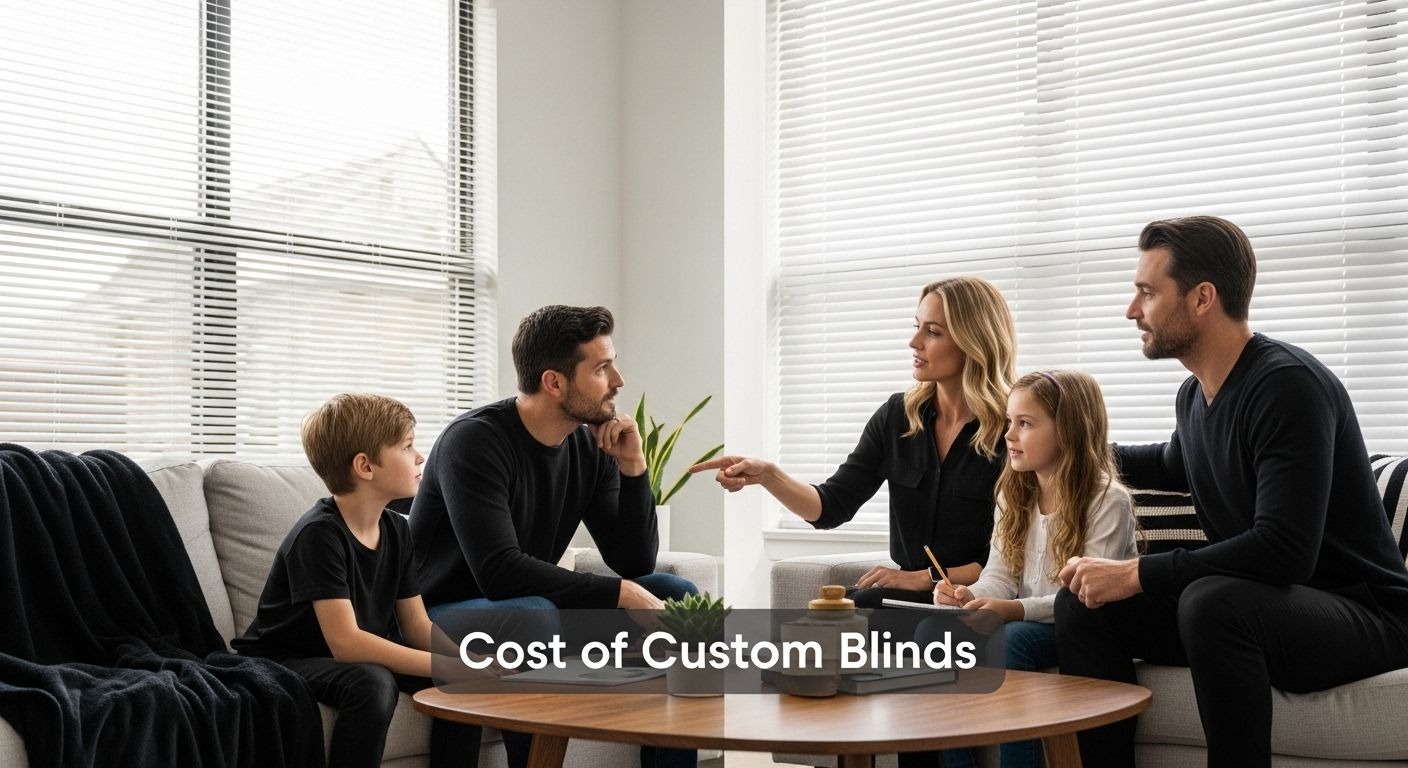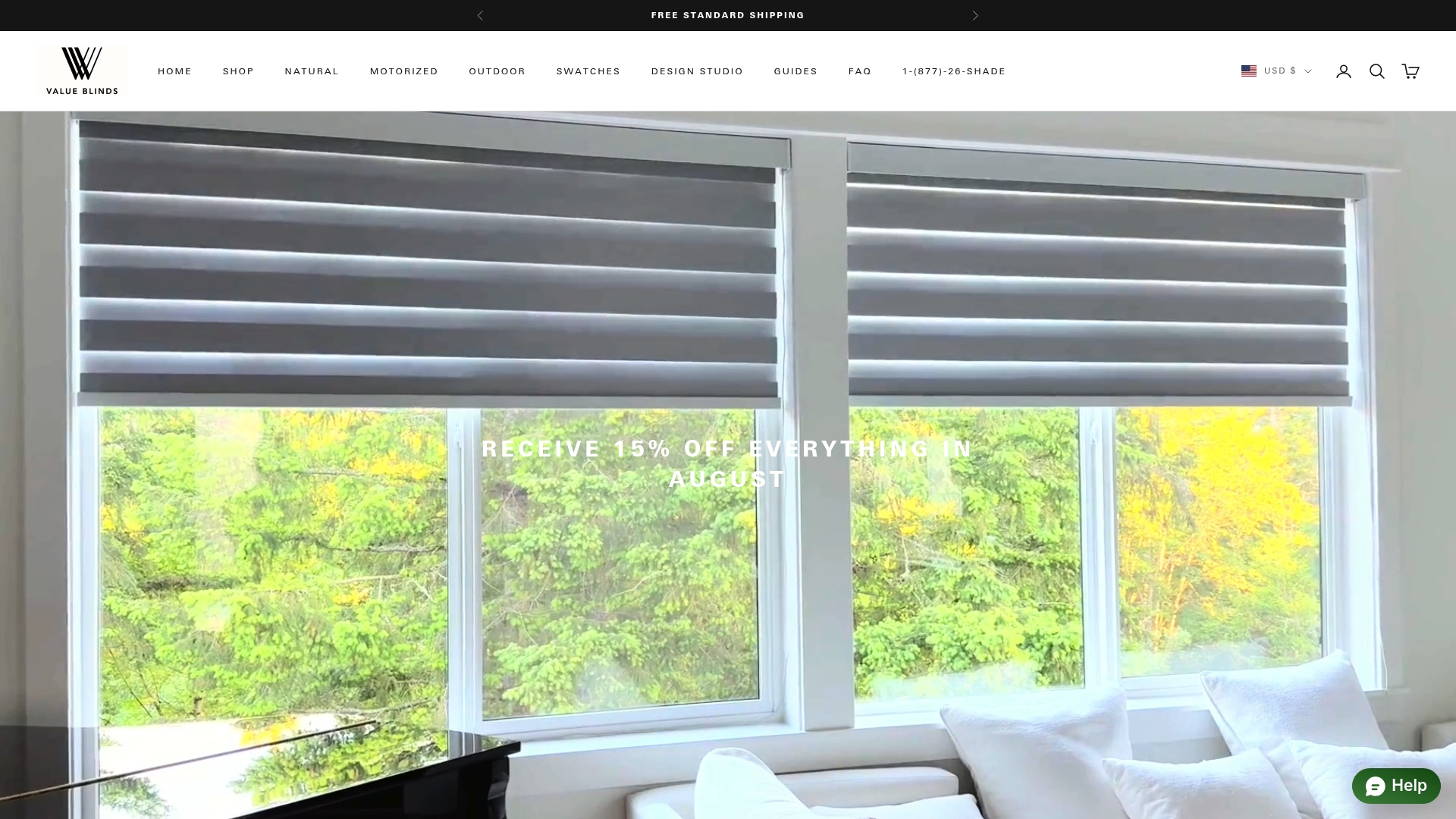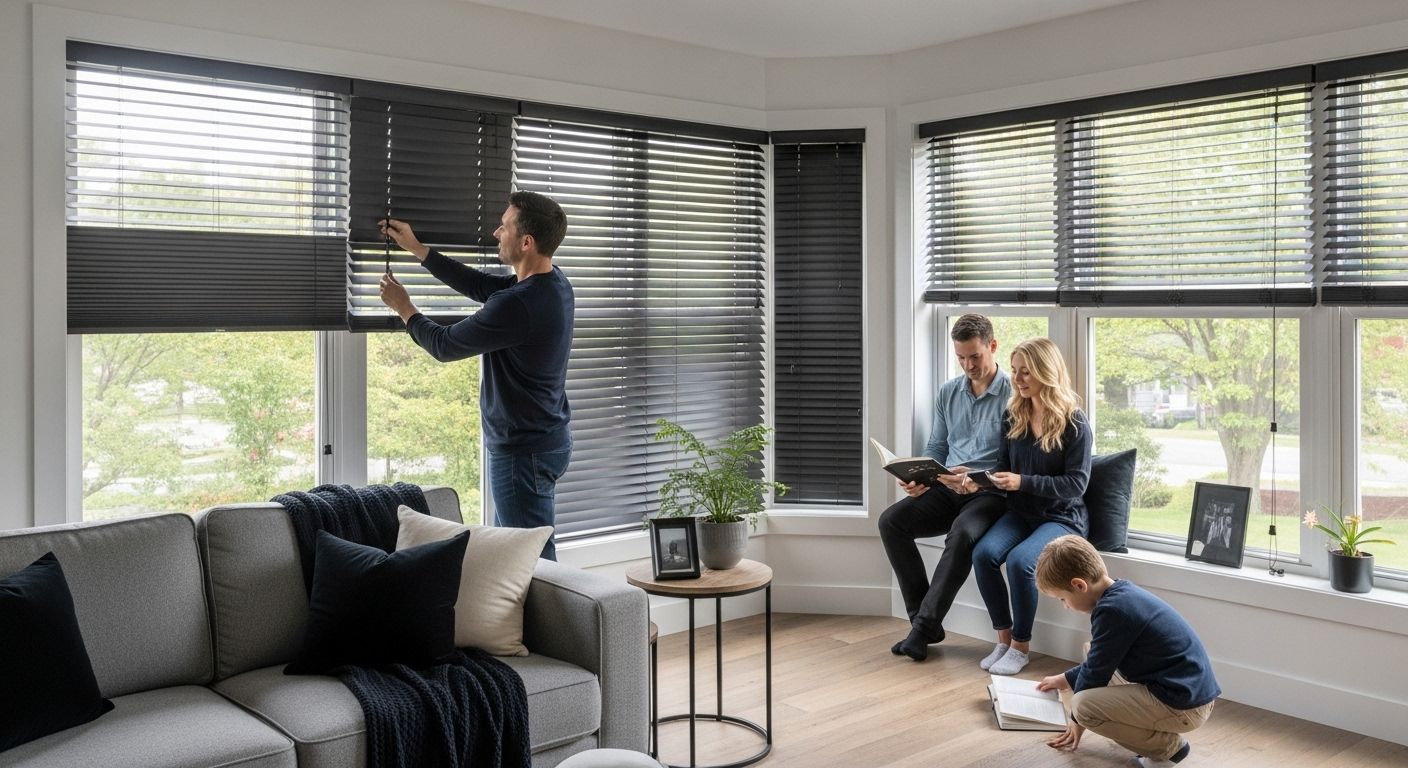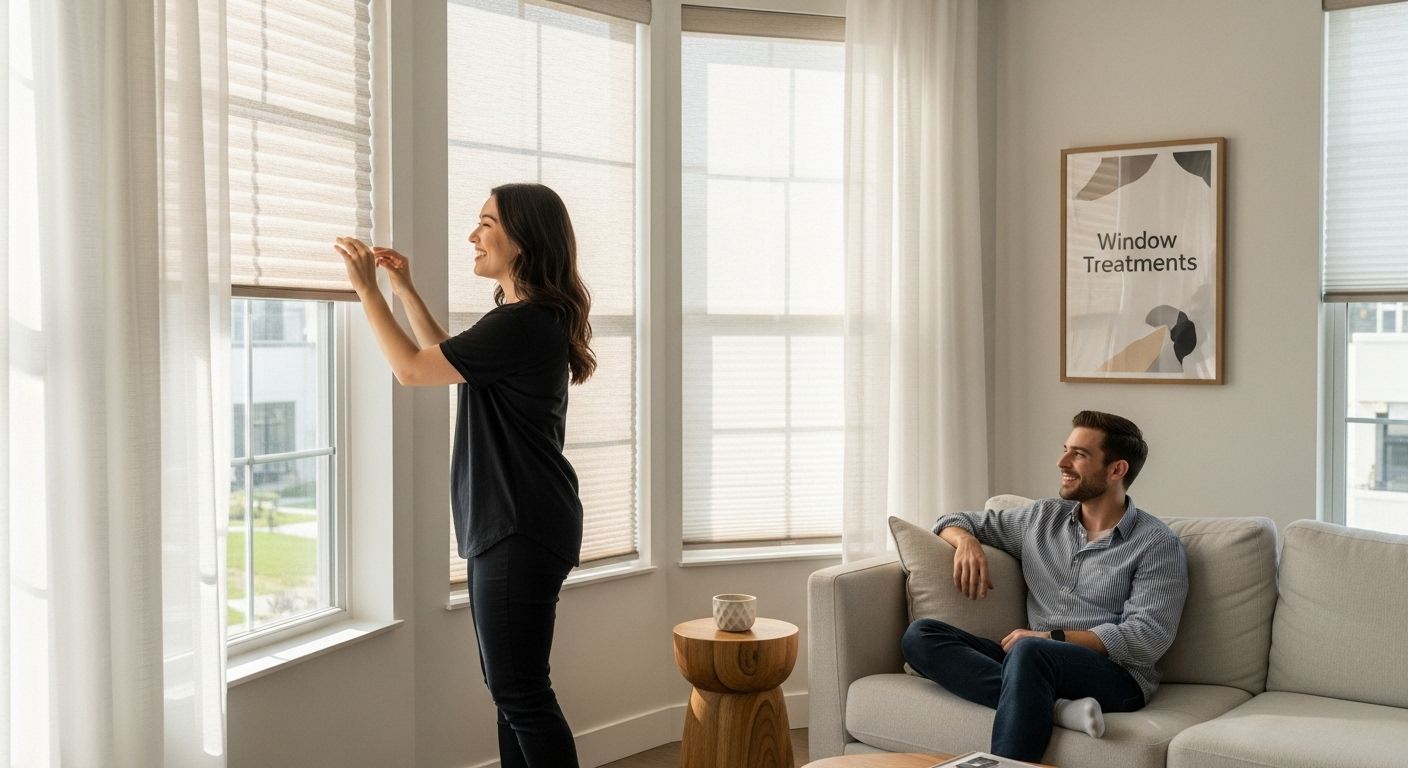
Understanding the Cost of Custom Blinds: What You Need to Know

Custom blinds change the way your windows look and work. Some homeowners pay as much as $2,010 for cellular shades or even $2,000 for wood blinds, while basic options cost just a fraction. You might think that kind of price only makes sense for millionaires, but the real shock is how much value those blinds offer in energy savings, perfect fit, and long-term personalization. The gap between custom and ready-made blinds is not just about money, it is about transforming your space to fit your life.
Table of Contents
- What Are Custom Blinds And Their Cost Factors?
- Why Custom Blinds Matter For Your Home’s Aesthetics
- How The Cost Of Custom Blinds Compares To Ready-Made Options
- Key Features And Materials Influencing Custom Blinds Pricing
- Real-World Examples: Pricing Insights For Different Styles
Quick Summary
| Takeaway | Explanation |
|---|---|
| Custom blinds fit unique specifications | They are tailored to meet exact window sizes and aesthetic preferences, offering better integration with home design. |
| Cost influenced by several factors | Material quality, window size, customization level, and installation impact the overall pricing of custom blinds. |
| Long-term value exceeds initial cost | Custom blinds provide durability and energy efficiency, making them a worthwhile investment despite higher upfront prices. |
| Advanced features enhance functionality | Technologies like motorization and energy-efficient materials add value and convenience, increasing the cost but improving performance. |
| Consider style-specific pricing | Each style of custom blind varies in cost based on material and complexity; choose wisely for your budget and design needs. |
What are Custom Blinds and Their Cost Factors?
Custom blinds represent a specialized window treatment solution meticulously designed to fit unique window dimensions and architectural styles. Unlike standard off-the-shelf options, these window coverings are crafted with precision to match individual homeowner specifications, offering unparalleled aesthetic and functional benefits.
Understanding Custom Blind Characteristics
Custom blinds are characterized by their tailored approach to window coverage. Learn more about window treatment options in our comprehensive guide. The key distinctions that set custom blinds apart include:
- Precise measurements matching exact window specifications
- Personalized material and style selections
- Enhanced energy efficiency through perfect fitment
- Higher quality construction compared to standard alternatives
According to the N.C. Cooperative Extension, custom window coverings provide homeowners with endless design possibilities while ensuring superior performance and aesthetic integration.
Cost Factors Influencing Custom Blind Pricing
The cost of custom blinds varies significantly based on multiple interconnected elements. Homeowners should consider several key pricing determinants:
- Material Quality: Premium materials like hardwood or specialized fabrics increase overall cost
- Window Size and Complexity: Larger or uniquely shaped windows require more intricate manufacturing
- Customization Level: Advanced features such as motorization or specialized treatments impact pricing
- Installation Requirements: Professional measurement and fitting contribute to total expenses
While custom blinds represent a higher initial investment, they offer long-term value through durability, energy efficiency, and personalized aesthetic enhancement. Understanding these nuanced cost factors helps homeowners make informed decisions about their window treatment investments.
Why Custom Blinds Matter for Your Home’s Aesthetics
Window treatments are far more than functional accessories they are integral design elements that dramatically transform interior spaces. Explore design transformation techniques to understand how strategic window coverings can revolutionize your home’s aesthetic appeal.
Visual Harmony and Design Integration
Custom blinds serve as sophisticated design tools that seamlessly bridge architectural elements and interior decor. According to research from the Institute of Business & Arts, window treatments play a critical role in creating visual harmony by controlling light, establishing mood, and complementing existing design themes.
Key aesthetic benefits of custom blinds include:
- Precise color coordination with room palette
- Ability to create visual texture and depth
- Sophisticated framing of architectural features
- Enhancement of spatial perception and room ambiance
Psychological Impact of Design Choices
Beyond visual appeal, custom blinds influence psychological perception of living spaces. Color, texture, and design complexity can significantly affect emotional responses and comfort levels. Thoughtfully selected window treatments communicate personal style while creating environments that feel intentional and curated.
Interior design is not just about appearance but about creating emotional experiences. Custom blinds offer a nuanced approach to manipulating light, privacy, and visual interest turning ordinary rooms into extraordinary living environments. By selecting window treatments that reflect personal taste and complement architectural characteristics, homeowners can craft spaces that feel both deeply personal and professionally designed.
How the Cost of Custom Blinds Compares to Ready-Made Options
Understanding the financial landscape of window treatments requires a comprehensive comparison between custom and ready-made blinds. Explore our comprehensive window treatment guide to gain deeper insights into pricing strategies and value considerations.
Price Range Breakdown
Ready-made blinds typically range from $20 to $200, offering an accessible entry point for budget-conscious homeowners. According to research from History Tools, retailers like Lowe’s and Home Depot provide standard blind options with prices varying based on material and size.
Key price differentiators include:
- Material quality and durability
- Complexity of design and manufacturing
- Customization level
- Brand reputation
Investment Value Considerations
Custom blinds represent a more significant upfront investment, usually ranging from $200 to $1000 per window. However, this higher cost translates into substantial long-term benefits:
- Precise measurements eliminating fitment issues
- Superior materials extending product lifespan
- Enhanced energy efficiency
- Personalized design matching specific aesthetic requirements
While ready-made options provide immediate affordability, custom blinds offer a tailored solution that potentially delivers greater value through durability, performance, and aesthetic alignment. Homeowners should evaluate their specific needs, budget constraints, and long-term home improvement goals when selecting window treatments.
To help compare the value and features of custom blinds versus ready-made blinds, the following table outlines their main differences in terms of fit, cost, quality, and benefits.
| Feature | Custom Blinds | Ready-Made Blinds |
|---|---|---|
| Fit | Made to measure for exact window specifications | Standard sizes, may not fit perfectly |
| Material & Quality | Wider selection; premium options available | Limited selection; generally more basic |
| Upfront Cost | Higher ($200–$1000+ per window) | Lower ($20–$200 per window) |
| Aesthetic Integration | Precise design matching decor and architecture | Generic styles, limited integration |
| Installation | Often requires professional measurement & fitting | Usually self-installed or basic setups |
| Long-Term Value | Greater durability, energy savings, and personalization | May need replacement sooner, less efficient |
| Advanced Features | Options like motorization, smart integration | Fewer advanced features |

Key Features and Materials Influencing Custom Blinds Pricing
Custom blind pricing is intricately connected to the specific materials, design complexity, and advanced features selected by homeowners. Explore our comprehensive window treatment options to understand the nuanced factors driving pricing variations.
Material Selection and Cost Impact
The fundamental determinant of custom blind pricing lies in material composition. According to research on window treatment materials, different materials significantly influence both cost and performance.
Key material categories include:
- Economical Options: Polyester, aluminum, and PVC offering budget-friendly solutions
- Mid-Range Materials: Composite wood and engineered polymers
- Premium Selections: Genuine hardwood, high-end textiles, and specialized synthetic blends
Advanced Features and Technological Enhancements
Technological sophistication dramatically influences pricing. Modern custom blinds extend far beyond basic light control, incorporating intelligent features that transform window treatments into advanced home systems:
- Motorization and smart home integration
- UV protection and energy efficiency technologies
- Noise reduction capabilities
- Automated light and temperature sensing mechanisms
Each technological enhancement represents an incremental investment, allowing homeowners to customize their window treatments according to specific functional and aesthetic requirements. The intersection of material quality and technological innovation ultimately determines the comprehensive value proposition of custom blinds.

Real-World Examples: Pricing Insights for Different Styles
Understanding custom blind pricing requires a nuanced exploration of real-world scenarios across various styles and configurations. Discover our premium window treatment collection to gain deeper insights into style-specific pricing dynamics.
Comparative Pricing Across Blind Styles
According to research from Washington Consumers’ Checkbook, pricing for custom window treatments varies dramatically based on material, complexity, and style. Typical price ranges demonstrate the significant investment different blind styles represent:
Below is a table summarizing the typical cost range for different popular custom blind styles, helping clarify style-specific pricing.
| Blind Style | Typical Price Range |
|---|---|
| Cellular Shades | $437 – $2,010 |
| Wood Blinds | $498 – $2,000 |
| Roman Shades | $600 – $1,800 |
| Vertical Blinds | $350 – $1,500 |
- Cellular Shades: $437 to $2,010
- Wood Blinds: $498 to $2,000
- Roman Shades: $600 to $1,800
- Vertical Blinds: $350 to $1,500
Factors Influencing Style-Specific Pricing
Each blind style carries unique pricing considerations that reflect its manufacturing complexity, material requirements, and aesthetic sophistication. Key price determinants include:
- Intricate design mechanisms
- Material quality and sourcing
- Manufacturing precision
- Customization complexity
- Technological integrations
Homeowners should view these price variations not as obstacles but as opportunities to invest in window treatments that precisely match their functional requirements and design aesthetics. The right selection balances budgetary constraints with long-term performance and visual appeal.
Make Your Custom Blind Investment Worth Every Dollar
Choosing custom blinds is a smart decision but figuring out their real cost and long-term value can feel overwhelming. If you are concerned about materials, features, or how to achieve a perfect fit, you are not alone. Many homeowners struggle to match their style goals with their budget. The search for durable, energy-efficient, and beautiful blinds is a common struggle, especially when you want both quality and a fair price. At Value Blinds, we understand your questions about options, craftsmanship, and what you actually get for your money.
Explore the Latest in Custom Blinds and discover how easy it is to create the exact look and function you want in your home.

Ready to get more for your investment? Shop now at Value Blinds for high-quality custom solutions and advanced Trending Features like blackout, cordless, and motorized blinds. Act today and see how our free swatch program and expert support can help you design blinds that fit your needs, your windows, and your budget perfectly.
Frequently Asked Questions
What are custom blinds?
Custom blinds are specialized window treatments designed to fit unique dimensions and styles, offering tailored aesthetic and functional benefits compared to standard options.
How do custom blinds differ from ready-made blinds?
Custom blinds are specifically tailored to a homeowner’s specifications, providing precise measurements, personalized materials, and superior quality, whereas ready-made blinds are mass-produced in standard sizes and styles.
What factors influence the cost of custom blinds?
The cost of custom blinds is influenced by material quality, window size and complexity, the level of customization, and installation requirements. Premium materials and technological features can also increase the overall pricing.
Are custom blinds worth the investment?
While custom blinds generally require a higher upfront investment compared to ready-made options, they offer long-term value through durability, energy efficiency, and a tailored design that enhances your home’s aesthetics.







